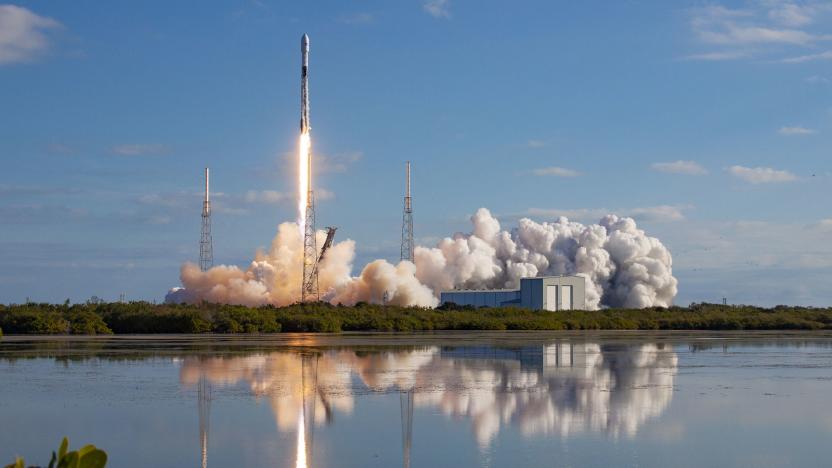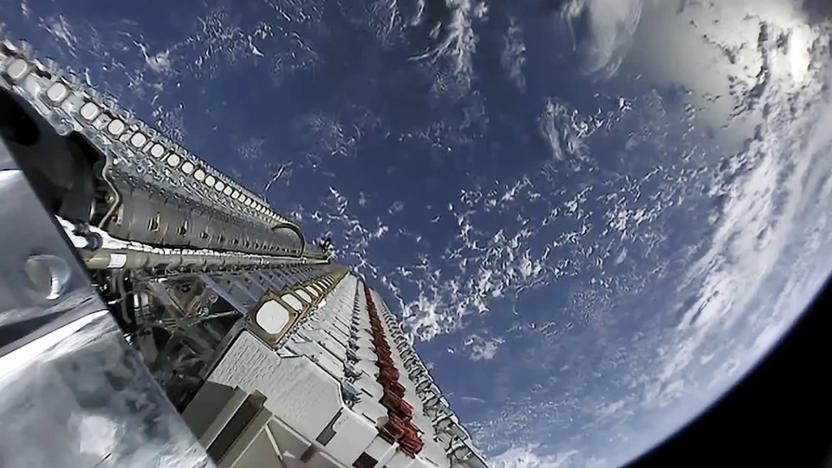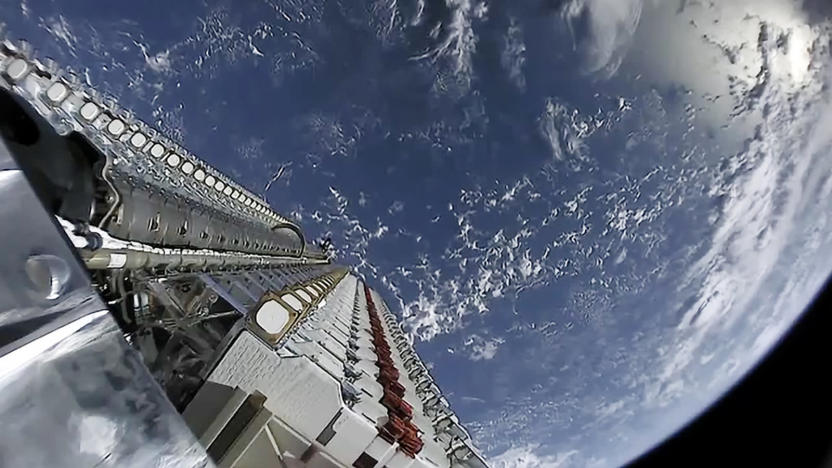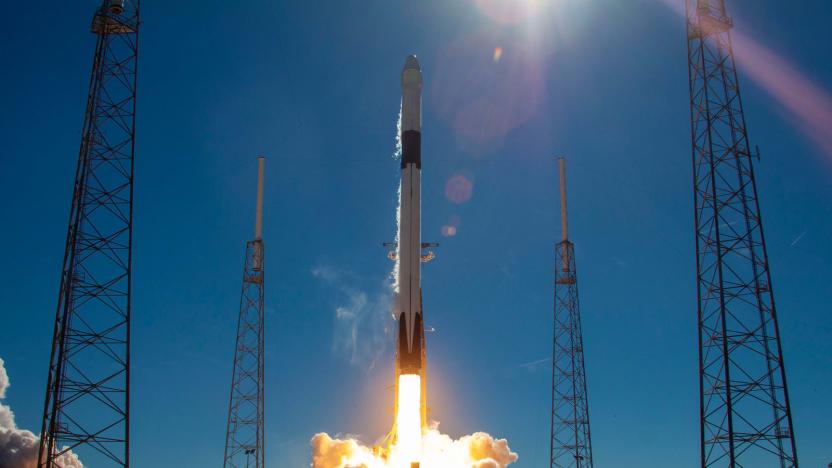internet satellite
Latest

Amazon’s satellite internet antennas can double as picnic tables for dolls
Amazon has revealed the first three antennas for its Project Kuiper satellite internet service, which is expected to open up to consumers in late 2024.

Russia refuses to launch OneWeb internet satellites following UK sanctions
Roscosmos wants assurances about non-military use and the UK government to divest its stake.

We're entombing the Earth in an impenetrable shell of dead satellites
A recent study suggests that there is now nowhere on Earth free from the light pollution produced by overhead debris and satellites. Researchers expect that problem to only get worse as mega-constellations of internet-beaming mini-satellites, like SpaceX’s Starlink program, take off.

SpaceX can soon offer Starlink's satellite internet to Canadians
The country’s regulators — the Innovation, Science and Economic Development department, in particular — have granted the company’s request for regulatory approval, allowing it to offer beta access to the high-speed internet network provided by Starlink’s satellite constellation. The service’s beta trials only started a few days ago after SpaceX sent out emails to people who previously signed up to receive more information about it.

Amazon asks FCC for permission to launch internet satellites
Amazon is moving fairly quickly on its plan to deploy thousands of internet satellites. The company has filed for FCC permission to launch 3,236 satellites as part of Project Kuiper. The spacecraft would be grouped into 98 orbital planes, and fly at altitudes between 366 and 391 miles. The filing reiterated Amazon's plans to connect "tens of millions" of people around the world, although the company warned that it couldn't cover everything -- it asked for a waiver on a requirement to serve the whole US as its satellites wouldn't cover parts of Alaska.

SpaceX is still in control of all but three of its internet satellites
How are SpaceX's Starlink internet satellites faring roughly a month after launch? Quite well, if you ask SpaceX. The company reported that it's in contact with 57 of the 60 initial broadband satellites. Although it's not certain what happened to those three faulty satellites, they'll eventually fall to Earth as gravity drags them down.

China launches a rocket from a ship for the first time
China has joined the US and Russia as the only nations to have successfully launched a rocket at sea. The National Space Administration's Long March 11 took off from a launchpad on a ship in the Yellow Sea today. The rocket carried five commercial satellites (including two for a company that plans to set up a global network of internet satellites) and two research-focused experimental ones.

SpaceX's internet satellites could be a problem for astronomers
As helpful as SpaceX's Starlink satellites may be, they could be a pain for astronomers. The Harvard-Smithsonian Center's Jonathan McDowell and others have observed that the internet satellites are bright enough to cause a "problem" for astronomy, and the eventual constellation of roughly 12,000 satellites could complicate humanity's view of the night sky. It would triple the number of satellites in orbit, CNET noted, forcing telescope operators to account for the objects.

FCC clears SpaceX to fly internet satellites in lower orbit
SpaceX is one step closer to fulfilling its plans of launching a host of internet satellites. The FCC has approved its revised plan that would fly over 1,500 of its Starlink satellites at a lower orbit of 'just' 550km (about 342 miles). The move clears the path for an initial Starlink launch "no earlier than" May, the company said. Theoretically, the lower flight path allows coverage with fewer satellites, lowers latency and reduces the chances of space debris.

Amazon plans to launch thousands of internet satellites
Amazon wants to launch thousands of low Earth orbit satellites to offer internet connection across the planet. With Project Kuiper, it aims to deploy 3,236 satellites to cover areas where about 95 percent of the global population live. Details otherwise are scant so far, including the estimated timeline for bringing the network online or how much the project will cost. Amazon confirmed the plans after GeekWire unearthed filings for it.

O3b satellites to enable connectivity for the world's "other 3 billion"
If you thought Verizon was taking its sweet time rolling out FiOS to your neighborhood, imagine how long it would take to connect the entire continent of Africa. Verizon wouldn't bother trying, but satellite company O3b, in partnership with Google, is doing just that. The pair plan to bathe that continent (and others) with soothing Internet waves via 16 medium-earth orbit (MEO) units. Latency is said to be only 120 milliseconds, with maximum download speeds at 1.25Gbps. That's seriously fast, about the same as Japan's Kizuna (set to cover disconnected Asian regions), but before you cancel your 1.5Mbps WildBlue account and go on a bandwidth safari know that these new orbital hotspots are destined to act as backbones for use by smaller ISPs. They'll in turn provide wireless access direct to customers over 3G or WiMax, throttling things appropriately. [Via ZDNet Government]

Japan launches Kizuna satellite, hopes it will deliver high-speed internet
Granted, most of us here in America would turn our noses up at receiving in-home broadband via satellite -- after all, cable and DSL seem to be treating most of us quite alright -- but Japan is hoping to provide access to more regions in Asia-Pacific with its recently launched Kizuna. The experimental satellite is not yet intended for commercial use, but if all goes well, it will enable data transmissions "of up to 1.2 gigabytes per second" at a low cost across Japan and 19 other locales in Southeast Asia. Unfortunately, we've no idea when it will escape the bondage of testing and actually be put to good use, but at least Japan's well on its way to actually establishing that wireless island, eh?[Via CNN, thanks to everyone who sent this in]





